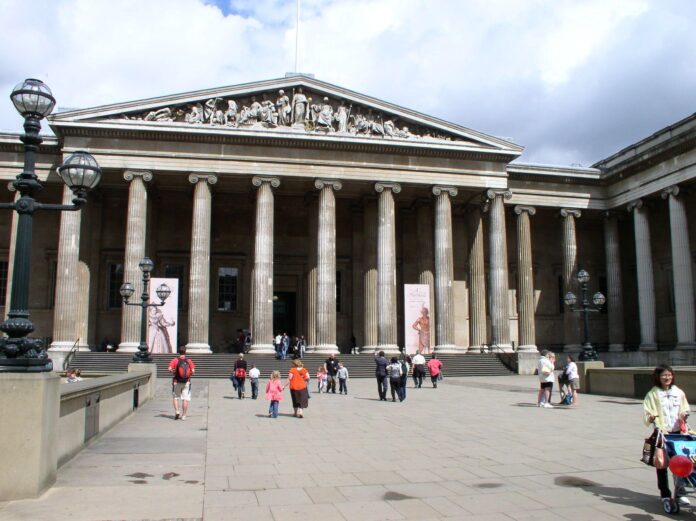Ira Gershwin’s lyrics, from the song “A Foggy Day (in London Town)”, took on an unexpected resonance last month, when murky goings on at the British Museum were revealed in the national press. A Daily Telegraph exclusive (on 17 August), identifying a senior museum curator, Peter Higgs, allegedly responsible for the theft of ancient gold jewellery, onyx gems and glassware from the museum over many years, provided the most damaging revelation. (Higgs’s son says he is innocent of wrongdoing.) It came hot on the heels of a British Museum press release, hastily issued at 5.45pm (UK time) on 16 August, which had been prompted by the Telegraph’s earlier enquiries into gold objects going missing from the collection. Several of these items had already been sold on eBay.
The museum’s press release on this “police matter” is essentially a long scroll of quotes from its chair, George Osborne, director, Hartwig Fischer, and Sir Nigel Boardman (the latter, a former trustee, who will be co-leading an independent review). Osborne’s statements expressed the trustees’ extreme concern, while also stressing that they had only learned about the situation “earlier this year”. Fischer’s quote contains an apology on the museum’s behalf. According to our information, the thefts may have begun as long ago as 2014, and senior staff at the museum had been alerted by 2021. Only now was the fog of internal secrecy lifting, with the museum trustees initiating action against the individual responsible, having reported the matter to the Metropolitan Police.
News of the theft had come just 19 days after the museum announced the surprise resignation of Fischer. It did not take long for the Daily Telegraph to join the dots, with anonymous British Museum staffers briefing that Fischer had been forced to resign by the trustees. Meanwhile, the alleged thief had been dismissed in the early summer and was, according to his son, struggling. (He was advertising himself as a tutor in English as a foreign language in his hometown of Hastings.)
The inevitable conflation of the thefts and the director’s resignation has plunged the museum into deep crisis, as our lead article reports. Thefts from museums may not be that unusual historically (and are often swept under the carpet, according to museum insiders, for fear of just such bad publicity), but the media has sniffed a wider cover-up. It would be natural for heads to roll in this situation, but Fischer’s head was already rolling. At the time of writing, there are calls for Fischer to go immediately (he is due to step down in 2024) amid news that more than 1,500 objects may be missing. However, well-placed insiders feel that this incident—serious though it is—may not be the full story behind his resignation. A difference in vision between Osborne and Fischer, notably on the return of the Parthenon Marbles, seems to have also played a role.
Now, aside from the many unanswered questions prompted by what is an ongoing police investigation, the biggest question facing the British Museum’s trustees is: who will take the masterplan forward? In essence, what type of intellectual leadership will the world’s premier museum plump for? Osborne’s quotes on the theft in the 16 August press release conclude rather ambiguously: “This incident only reinforces the case for the reimagination of the museum we have embarked upon.”

























